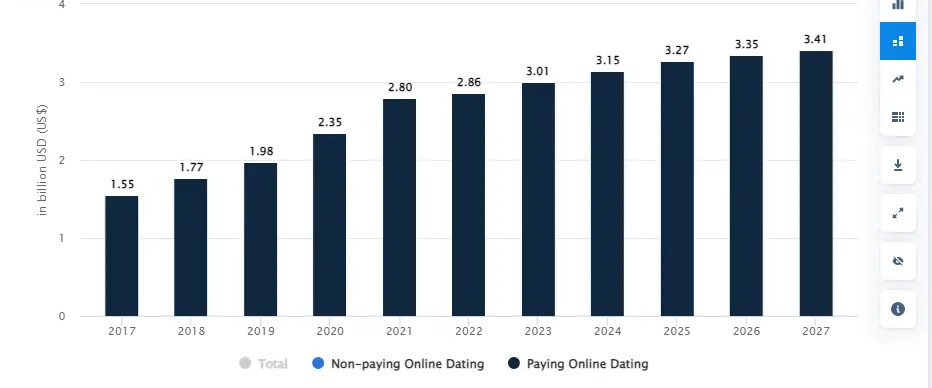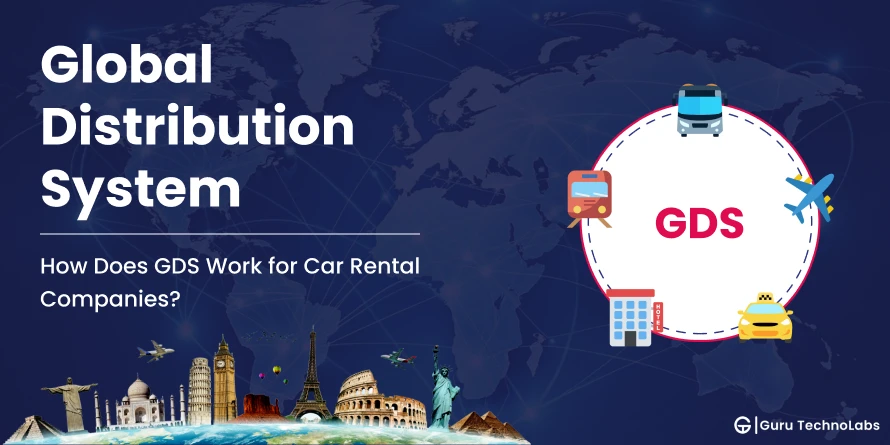In today’s rapidly evolving travel landscape, the demand for seamless, real-time booking across all aspects of travel is at an all-time high. Whether a business traveler landing in New York or a family vacationing in Paris, travelers expect to book flights, hotels, and rental cars in one smooth transaction.
That’s where Global Distribution Systems (GDS) come into play.
While GDS has long been a staple for airlines and hotels, it’s now revolutionizing how car rental companies reach global customers.
Just ask Enterprise Rent-A-Car or Avis, which have long used GDS to expand their reach and provide travelers with easy access to rental options across the globe. By connecting to millions of travel agents and online platforms, top GDS systems ensure car rental services don’t get left behind in the digital race.
Integrating with a GDS system can open doors to new markets, streamline inventory management, and make real-time bookings a reality. In this guide, we’ll explore exactly how GDS works for car rentals and how your business can leverage this powerful tool to stay competitive in a crowded marketplace.
What is GDS for Car Rental Companies?
A GDS, or Global Distribution System, is like a big digital marketplace that connects car rental companies with travel agents, online booking platforms, and even airlines.
It allows rental car inventory, like which cars are available, at what price, and in which location, to be instantly visible to people booking travel around the world.
Think of it this way: when you go to a travel website like Expedia, Kayak, or even book a flight and see the option to add a rental car, the information you’re seeing likely comes from a GDS.
Did You Know?
Over 60% of car rental bookings made by travel agents are routed through a GDS. That means car rental companies that aren’t on GDS risk missing out on a massive chunk of business. /p>
A traveler flying into Rome might book their flight, hotel, and rental car all in one go through a site like Booking.com. Behind the scenes, the GDS pulls in the rental car options from several providers – Hertz, Avis, Europcar, etc. So the traveler can compare and choose. None of this would be possible without the GDS quietly doing the heavy lifting.
How Does GDS Work for Car Rental Companies: A Simplified Breakdown

At its core, a GDS acts as a middleman between car rental companies and travel booking platforms. It automates how rental car options are shared, searched, and booked across the globe – in real time. Here’s how the process flows:
- Car rental companies feed their fleet data (car types, availability, prices, pick-up/drop-off locations) into the GDS. This can be done directly or via a channel manager.
- The GDS collects this information from multiple rental providers, standardizes it, and makes it searchable for travel agencies and booking engines.
- Online travel agencies (like Expedia or Booking.com), airline websites, and even corporate travel systems use the GDS to access this up-to-date rental information.
- When a customer books a car through one of these platforms, the GDS instantly processes the request and updates the rental company’s inventory in real-time.
- The reservation is confirmed and synced across systems, ensuring that the same car isn’t double-booked and the user gets immediate confirmation.
- Car rental companies receive booking data, consumer insights, and demand trends through the GDS, helping them optimize pricing and availability.
Who Uses GDS to Book Car Rentals?
GDS is primarily used by travel agents, online travel agencies (OTAs), corporate travel managers, airline websites, and hotel booking platforms to book car rentals. These users rely on the GDS to access real-time inventory, pricing, and availability from multiple rental car providers in one place.
It streamlines the booking process, especially for travelers who are booking flights, hotels, and cars together. Even some large-scale tour operators, and government, and departments use GDS platforms to manage transportation needs efficiently and at scale.
Benefits of GDS for Car Rental Companies
GDS (Global Distribution System) empowers car rental companies to reach more travelers, manage their fleet smartly, and grow bookings across the globe.
- Global Exposure: By listing the service on global platforms, car rental gains instant visibility to global travelers. This opens doors to new markets and keeps bookings steady all year round.
- Inventory Control: With centralized access to fleet data, managing availability becomes seamless and precise. Companies can avoid overbooking and ensure every car is used to its full potential.
- Real-time Updates: Rates, availability, and bookings sync instantly across all connected systems. This keeps customers informed and operations running without a hitch.
- Cost-efficiency: Automation through GDS reduces manual work and unnecessary expenses. More direct bookings mean better margins and fewer third-party fees.
- Integration with Airlines/Hotels for Bundled Bookings: Offering cars in bundle deals with flights and hotels enhances the customer journey. It drives more bookings by being part of complete travel packages that travelers love.
Challenges of Using GDS for Car Rentals
While GDS offers significant advantages, car rental companies also face a few challenges that can impact costs, control, and customer relationships.
- Commission Fees: Listing on GDS platforms often comes with high commission charges per booking. These fees can eat into profit margins, especially for smaller rental operators.
- Limited Direct Customer Relationships: Bookings made through GDS limit direct interaction with renters. This reduces opportunities to build brand loyalty or upsell personalized services.
- Technical Integration Hurdle: Integration of GDS with existing systems can be complex and time-consuming. It often requires dedicated IT support and ongoing maintenance to keep things running smoothly.
- Dependency on Third-party Platforms: Relying heavily on GDS means depending on external systems for visibility and sales. Any downtime or changes in policies can directly affect your business performance.
The Future of GDS in Car Rentals: Mobility, AI, and Seamless Travel
The future of GDS in car rentals is all about smarter, more connected travel. With the rise of mobility services, AI-driven personalization, and demand for a seamless booking experience, GDS platforms are evolving to integrate not just cars but scooters, rideshares, and more, making travel truly flexible.
As the travel industry moves towards real-time data, automation, and sustainability, GDS will be at the heart of it all.
Ready to integrate GDS solution for your car rental business? Let’s connect and drive your growth forward.





















